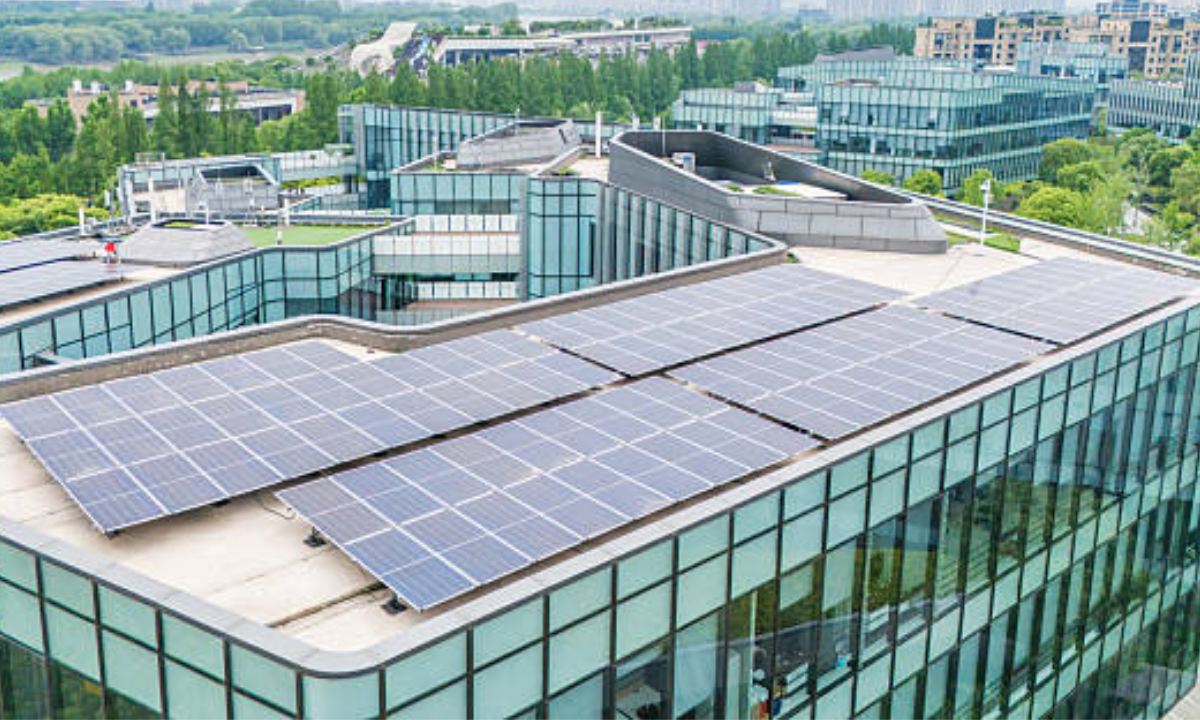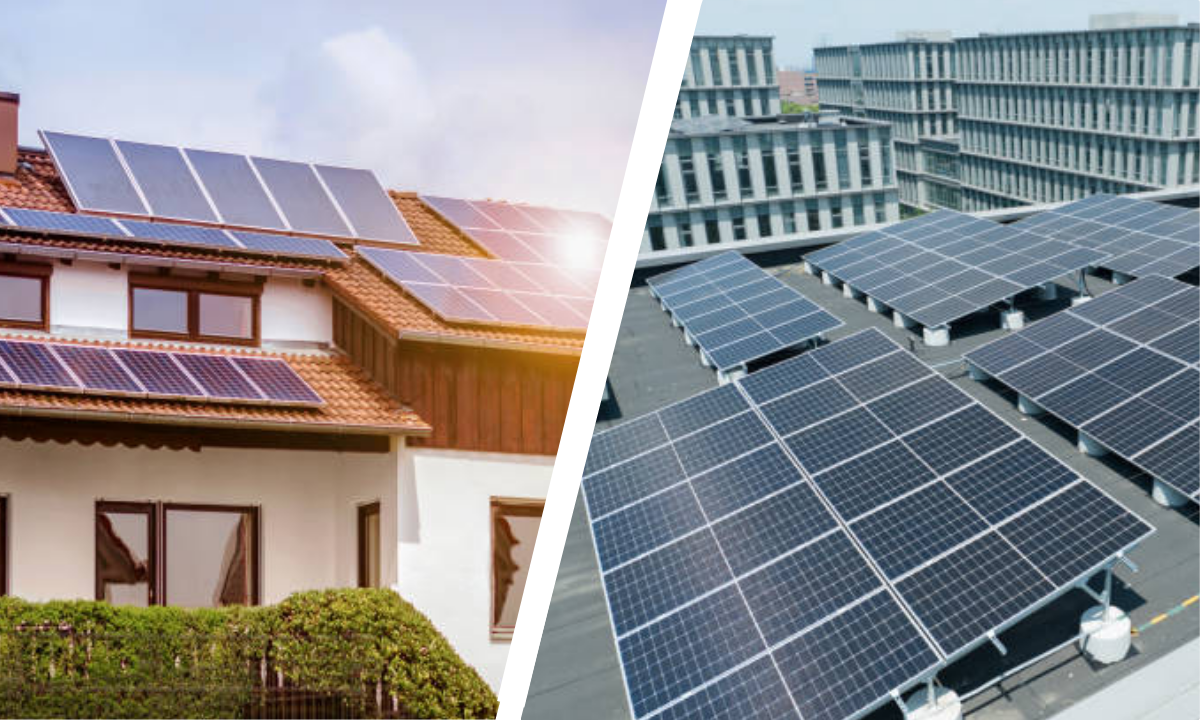Solar panel technology has completely changed how we power our homes and offices. With electricity prices constantly rising and environmental concerns becoming more urgent, switching to solar is no longer just a trend; it’s a smart, future-ready choice.
At Shobha Globs, we’ve seen how solar adoption in India has grown rapidly, not only for homes but also for businesses aiming to reduce their carbon footprint and save on long-term energy costs.
In this complete guide, we’ll walk you through the key things you need to know, from monocrystalline vs polycrystalline solar panels, selecting the best solar panels in India, exploring high-efficiency solar panels, and deciding between commercial solar panels and residential solar panels. We’ll also explain why partnering with an experienced best solar panel installation company in Bangalore can make all the difference.
1. Understanding Solar Panel Types
Your first decision will often be between monocrystalline and polycrystalline solar panels.
| Feature | Monocrystalline Panels | Polycrystalline Panels |
| Appearance | Black, sleek finish | Blue, speckled look |
| Efficiency | 18–22% | 15–18% |
| Space Requirement | Ideal for smaller roofs | Needs more space for the same output |
| Cost | Higher upfront cost | More budget-friendly |
| Lifespan | 25+ years | 20–25 years |
Tip: If you want high-efficiency solar panels and have limited space, monocrystalline is the better choice. For larger spaces and lower costs, polycrystalline works well.
2. What Defines the Best Solar Panels in India

The best solar panels in India are more than just brand names; they must perform well in Indian weather and provide value for money.
Key things to look for:
- Efficiency – Higher efficiency solar panels = more power from less space.
- Durability – Must handle heat, dust, and monsoon rains.
- Warranty – 25 years or more is ideal.
- Cost-effectiveness – Balance initial cost with lifetime savings.
- Local service – Easy access to maintenance and spare parts.
3. Residential vs Commercial Solar Panels
Residential Solar Panels
- Perfect for homes looking to reduce electricity bills.
- Usually, smaller systems (2–10 kWp).
- Appearance matters for rooftop integration.
- May be eligible for subsidies.
Commercial Solar Panels
- Large systems (10 kWp to several MW).
- Designed for offices, factories, and institutions.
- Prioritize high output and durability.
- Can be mounted on rooftops, ground, or as solar carports.
4. Why Work with a Solar EPC Company in India
A Solar EPC company in India manages everything: engineering, procurement, and construction, so you don’t have to worry about technical details.
The best solar panel installation company in Bangalore will offer:
- On-site assessment and system design.
- Certified installation with quality components.
- Long-term service and performance monitoring.
When experts handle your project, both residential and commercial solar panels deliver better results and last longer.
5. Installation Considerations
Even the best solar panels in India will underperform if installed poorly.
Before installation:
- Roof orientation – South-facing works best in India.
- Shading – Avoid obstructions like trees or buildings.
- Mounting structure – Use corrosion-resistant materials.
- Inverter quality – Crucial for efficient power conversion.
- Future expansion – Plan space for additional panels.
6. Pro Tips for Choosing the Right Solar Panel
- Check your average monthly electricity use before deciding on capacity.
- Choose high-efficiency solar panels for small rooftops.
- Compare lifetime costs, not just the upfront price.
- Ensure BIS or IEC certification.
- Consider hybrid systems with batteries for backup power
7. Example Scenarios
Case 1 – Residential
A family using 500 units monthly installs a 4 kWp monocrystalline system. It fits their small rooftop and meets their energy needs efficiently.
Case 2 – Commercial
A company with ample roof space installs a 50 kWp polycrystalline system. The lower cost per panel keeps the project within budget without sacrificing performance.
8. Maintenance Essentials
Solar panels need minimal maintenance, but regular checks help keep performance high.
- Clean panels every 3–4 months.
- Inspect wiring for wear and tear.
- Monitor output to detect any drop in efficiency.
- Schedule annual servicing.
9. FAQs
Q1: Which is better: monocrystalline or polycrystalline solar panels?
Monocrystalline panels are more efficient and perform better in low light, making them ideal if you have limited space. Polycrystalline panels are more affordable and work well if you have a larger installation area.
Q2: Are high-efficiency solar panels worth it?
Yes, especially when roof space is limited. They generate more power per square meter and can help recover your investment faster through energy savings.
Q3: How long do solar panels last?
Most panels last 25–30 years with proper installation and care, maintaining strong performance even after decades.
Q4: Can solar panels work in cloudy weather?
Yes, though at reduced capacity. They still generate electricity even in diffused light, with monocrystalline panels performing slightly better in such conditions.
Q5: What does a Solar EPC company do?
They manage the entire solar project: design, equipment procurement, installation, and maintenance, so you get a complete, hassle-free solution.
Final Thoughts
Choosing the right solar panel means understanding your energy needs, available space, and budget. By comparing monocrystalline vs polycrystalline solar panels, finding the best solar panels in India, and selecting between commercial solar panels and residential solar panels, you can make a decision that benefits you for decades.
Working with a trusted partner like Shobha Globs, a reliable name among Solar EPC company in India, ensures that your solar system is built to last, efficient, and ready to deliver savings year after year.
With the right choice, you are not just saving money; you are reducing your carbon footprint and contributing to a cleaner, greener planet.

